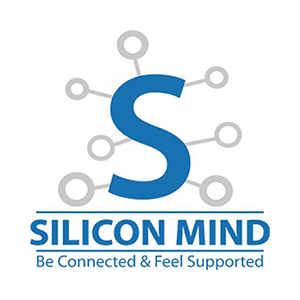In today’s rapidly evolving business landscape, the role of IT outsourcing companies is becoming increasingly pivotal as organizations seek to leverage external expertise and resources for their technological needs. As businesses adapt to new challenges and opportunities, understanding the emerging trends in IT outsourcing becomes crucial for staying ahead in a competitive environment. From cloud computing to cybersecurity, artificial intelligence to agile development methodologies, this blog delves into the ever-evolving landscape of IT outsourcing companies and explores the transformative trends shaping the future of business technology outsourcing. Join us as we unravel the latest insights and innovations driving this dynamic industry forward.
Impact of Emerging Technologies on IT Outsourcing Companies
1- Automation and AI Integration
Automation and AI are transforming IT outsourcing. These technologies streamline repetitive tasks, cutting down on manual labor. This shift allows companies to allocate resources towards more strategic goals. Clients benefit from faster delivery times and improved accuracy. Automated systems also reduce the risk of human error, ensuring higher quality outcomes.
AI enhances data analysis, providing valuable insights for decision-making. Machine learning algorithms can predict trends and potential issues, allowing for proactive measures.
Outsourcing companies that integrate automation and AI remain competitive. They can offer innovative solutions and maintain a high level of service. This technological adoption drives efficiency and cost savings for both providers and clients.
2- Blockchain Technology in Outsourcing Services
Blockchain technology is revolutionizing IT outsourcing. It enhances transparency by providing a decentralized ledger for all transactions. This reduces the likelihood of fraud and discrepancies. Clients can track every step of a process in real-time.
Smart contracts automate contract execution, ensuring terms are met without third-party intervention. This boosts efficiency and trust between outsourcing partners. Moreover, blockchain’s robust security features protect sensitive data.
Outsourcing companies leveraging this technology offer more secure and reliable services. They attract clients who prioritize data integrity and transparency. Blockchain is, thus, a transformative force, making outsourcing partnerships more seamless and trustworthy.
Remote Work and Virtual Teams in IT Outsourcing
In recent years, IT outsourcing has increasingly relied on remote work. Advancements in technology have made virtual collaboration more effective. Teams spread across various locations can now work seamlessly. Remote work offers flexibility and access to a global talent pool.
It reduces overhead costs related to physical office spaces. Despite the geographical distance, communication tools ensure real-time interaction among team members. Outsourcing companies must focus on maintaining productivity and managing time zones effectively.
Policies for remote work include regular updates and virtual meetings. A robust cybersecurity framework is essential to protect sensitive data. This trend promotes a balanced work-life dynamic, enhancing overall job satisfaction.
1- Benefits of Remote Work for IT Outsourcing Companies
Remote work brings numerous advantages to IT outsourcing companies. One significant benefit is access to a global talent pool, allowing firms to hire the best professionals regardless of location. This flexibility often leads to increased productivity, as employees can work in environments that suit them best.
Cost savings are another major advantage, with reduced expenses on office space and utilities. Additionally, remote work can improve employee satisfaction and retention rates by offering a better work-life balance. These benefits collectively enhance the efficiency and competitiveness of IT outsourcing companies, making them more adaptable in the rapidly evolving tech landscape.
2- Challenges and Solutions in Managing Virtual Teams
Managing virtual teams comes with its own set of challenges. Communication barriers often arise due to different time zones and diverse cultural backgrounds. To address this, IT outsourcing companies can implement unified communication tools and schedule regular check-ins.
Another issue is ensuring accountability and tracking progress. Utilizing project management software helps in maintaining transparency and monitoring tasks efficiently. Building team cohesion can be difficult when members are dispersed.
Virtual team-building activities and regular virtual meetings can foster a sense of community. Lastly, remote work can lead to isolation; offering mental health support and social interaction opportunities can mitigate this issue.
Cybersecurity Trends in IT Outsourcing
1- Importance of Cybersecurity in Outsourcing Partnerships
Cybersecurity is a cornerstone in outsourcing partnerships. It protects sensitive data from breaches and cyber threats. Clients seek assurance that their information is safe. Strong cybersecurity practices build trust between partners. Regulatory compliance is also crucial.
Adherence to standards like GDPR or ISO 27001 is often required. Breaches can lead to financial losses and reputational damage. Cybersecurity measures reduce these risks significantly. Continuous monitoring and updates are essential.
This ensures systems are protected against evolving threats. In outsourcing, proactive cybersecurity fosters smoother operations. It also minimizes disruptions caused by potential attacks. Therefore, robust security protocols are non-negotiable in these collaborations.
2- Implementing Secure IT Infrastructure and Protocols
Establishing a secure IT infrastructure is vital for IT outsourcing companies. They must begin with a thorough risk assessment. Identifying potential vulnerabilities is the first step. Implementing robust firewalls and encryption methods comes next.
These measures safeguard against unauthorized access. Regular software updates and patches are crucial. They protect systems from newly discovered threats. Multi-factor authentication adds an extra layer of security. It minimizes risks associated with compromised passwords.
Continuous network monitoring is essential. It helps detect and respond to suspicious activities promptly. Additionally, training employees on security best practices is important. Human error often leads to breaches. Overall, a proactive approach ensures data integrity and client trust.

When exploring the evolving landscape of IT outsourcing services and aiming to select a reliable partner for your business, Silicon Mind emerges as an exceptional choice. Our IT outsourcing solutions are intricately designed to bolster operational efficiency, technological connectivity, and innovative strategies within your organization, paving the way towards a dynamic digital future.
With Silicon Mind’s extensive experience in IT outsourcing practices, we transcend traditional approaches by delving deep into your unique business requirements. Through personalized consultations, we craft tailored strategies that seamlessly align with your company’s objectives, covering a wide array of services from software development and maintenance to helpdesk support and cybersecurity measures. This diverse suite ensures a smooth transition to an outsourced environment that empowers sustainable growth for your business.
Take the definitive step towards enhancing operational efficacy and gaining a competitive edge by engaging with us today for a strategic partnership dedicated to realizing your IT outsourcing goals. Contact us now to schedule a complimentary consultation and embark on a transformative journey towards maximizing the benefits of IT outsourcing for your business success.
Agile and DevOps Practices in IT Outsourcing
Agile and DevOps methodologies are transforming IT outsourcing. Agile focuses on iterative development. It enables teams to adapt quickly to changes. This flexibility is crucial for meeting client needs. DevOps promotes collaboration between development and operations. It streamlines the software delivery process. Faster releases and fewer errors are the result. Outsourcing companies adopting these practices can offer better quality. They can also provide more reliable services. Transparent communication is a key benefit of Agile. Continuous feedback loops in DevOps enhance performance. Together, these methodologies drive innovation. They ensure projects are completed efficiently and effectively. Clients gain more value, fostering long-term partnerships.
1- Evolution of Agile Methodologies in Outsourcing Projects
Agile methodologies have evolved significantly in outsourcing projects. Initially, Agile was used mainly for software development. Now, it’s applied across various project types. Outsourcing companies embraced Agile for its flexibility. It allows teams to adapt quickly to client needs. Frequent iterations and feedback loops improve project outcomes. Team collaboration has become more efficient. Tools like Scrum and Kanban boards streamline processes. These tools help track progress and identify bottlenecks. Clients also appreciate the transparency Agile provides. Regular updates keep them informed. This builds trust and strengthens relationships. As a result, Agile has become a cornerstone in successful outsourcing projects.
2- DevOps Integration for Streamlined IT Operations
DevOps has become crucial in IT outsourcing. It merges development and operations teams. This integration enhances collaboration. Automated tools and processes speed up delivery. As a result, businesses face fewer delays. Continuous integration and continuous deployment (CI/CD) pipelines ensure seamless updates. DevOps practices improve software quality. They enable rapid problem-solving and reduce downtime. Outsourcing companies can respond quicker to client demands. This efficiency leads to improved client satisfaction. Moreover, DevOps helps in resource optimization. Teams can focus on innovation rather than maintenance tasks. Overall, DevOps integration streamlines IT operations, making them more effective and resilient.
Sustainability and Environmental Initiatives in IT Outsourcing
Green IT practices are gaining importance. IT outsourcing companies focus on energy efficiency. Optimizing data centers reduces energy consumption. Using renewable energy sources is becoming common. Companies also implement e-waste recycling programs. These programs ensure safe disposal of electronic waste.
Corporate Social Responsibility (CSR) is also pivotal. Outsourcing firms engage in various CSR activities. They support community development and education. Social responsibility enhances their brand image. Employees feel proud to work for responsible companies.
Sustainable practices attract eco-conscious clients. It also reduces operational costs in the long run. Embracing sustainability is not just ethical but also profitable. It positions companies as leaders in environmental stewardship.
1- Green IT Practices and Energy Efficiency
Green IT practices focus on reducing environmental impact. IT outsourcing companies are optimizing data centers. This optimization reduces energy consumption significantly. Many are turning to renewable energy sources. Solar and wind power are becoming more common.
Companies also emphasize energy-efficient hardware. Upgrading to modern servers cuts down on power usage. Virtualization and cloud computing play a crucial role too. They help in consolidating workloads, reducing the number of physical machines.
Furthermore, firms engage in e-waste recycling programs. Proper e-waste management ensures safe disposal of electronic waste. These initiatives not only help the environment but also lower operational costs. Sustainable practices attract eco-conscious clients, boosting business prospects.
2- CSR Programs and Social Responsibility in Outsourcing Companies
Many IT outsourcing companies are embracing Corporate Social Responsibility (CSR). These initiatives focus on community engagement and sustainable practices. Firms are investing in education and skill development programs. Such programs help local communities thrive.
Environmental responsibility is also a key aspect. Companies are reducing carbon footprints through various green initiatives. Efforts include waste reduction, recycling, and conservation projects. Many are partnering with non-profits for greater impact.
Employee volunteerism is highly encouraged as well. Workers participate in local community service projects. These initiatives not only boost morale but also improve public perception.
Overall, CSR programs are creating positive social and environmental change, enhancing the company’s reputation.
Future of IT Outsourcing Post-Pandemic
The pandemic has redefined IT outsourcing. Companies are now leaning towards hybrid work models. This change offers flexibility and cost savings. Outsourcing firms are adapting to evolving client needs. They focus on rapid digital transformation efforts.
Collaborative tools and cloud services have become essential. These technologies support efficient remote work. Additionally, there is a rising demand for cybersecurity expertise. Companies must protect data in decentralized environments.
Outsourcing firms are also focusing on upskilling their workforce. Providing advanced training helps manage new technology demands. Overall, the future will see more adaptable and resilient outsourcing strategies, meeting the changing landscape head-on.
1- Shift towards Hybrid Work Models
The pandemic accelerated the adoption of hybrid work models. Businesses recognize the benefits of combining remote and on-site work. This flexibility helps attract a global talent pool. It also reduces overhead costs. Companies are investing in advanced collaborative tools to support this shift. These tools ensure seamless communication and productivity.
Remote work has shown that many tasks do not require physical presence. As a result, companies are redefining office spaces. They’re focusing on spaces suited for collaboration rather than daily tasks. The hybrid model supports work-life balance, enhancing employee satisfaction and retention. Ultimately, this approach offers cost efficiency and improved employee well-being, making it a pivotal trend in IT outsourcing.
2- Adapting to Changing Client Needs and Industry Trends
IT outsourcing companies must stay nimble to succeed. Clients demand more personalized services now. This shift requires continuous learning and adaptability. Companies must also align with industry trends. For instance, there is a growing focus on cloud solutions. Outsourcing providers are investing heavily in cloud expertise.
Additionally, the rise of data analytics can’t be ignored. Clients want insights-driven decision-making support. Thus, outsourcing firms are expanding their analytics capabilities. Cybersecurity remains a top concern too. Meeting stringent security standards is essential. Outsourcing companies ensure they have robust measures in place.
Conclusion
As businesses continue to embrace the advantages of partnering with IT outsourcing companies, it is evident that the future of outsourcing is filled with immense possibilities and potential. By staying abreast of the latest trends and advancements in technology, organizations can position themselves for success and innovation in a rapidly advancing digital world. Whether it’s harnessing the power of AI, optimizing cloud solutions, or fortifying cybersecurity measures, the landscape of IT outsourcing remains ripe for exploration and growth. Embracing these trends not only ensures operational efficiency but also paves the way for unprecedented opportunities in driving business excellence. As we look ahead to the future, let us remain agile, informed, and poised to capitalize on the transformative potential that IT outsourcing brings to businesses worldwide.
Read More


